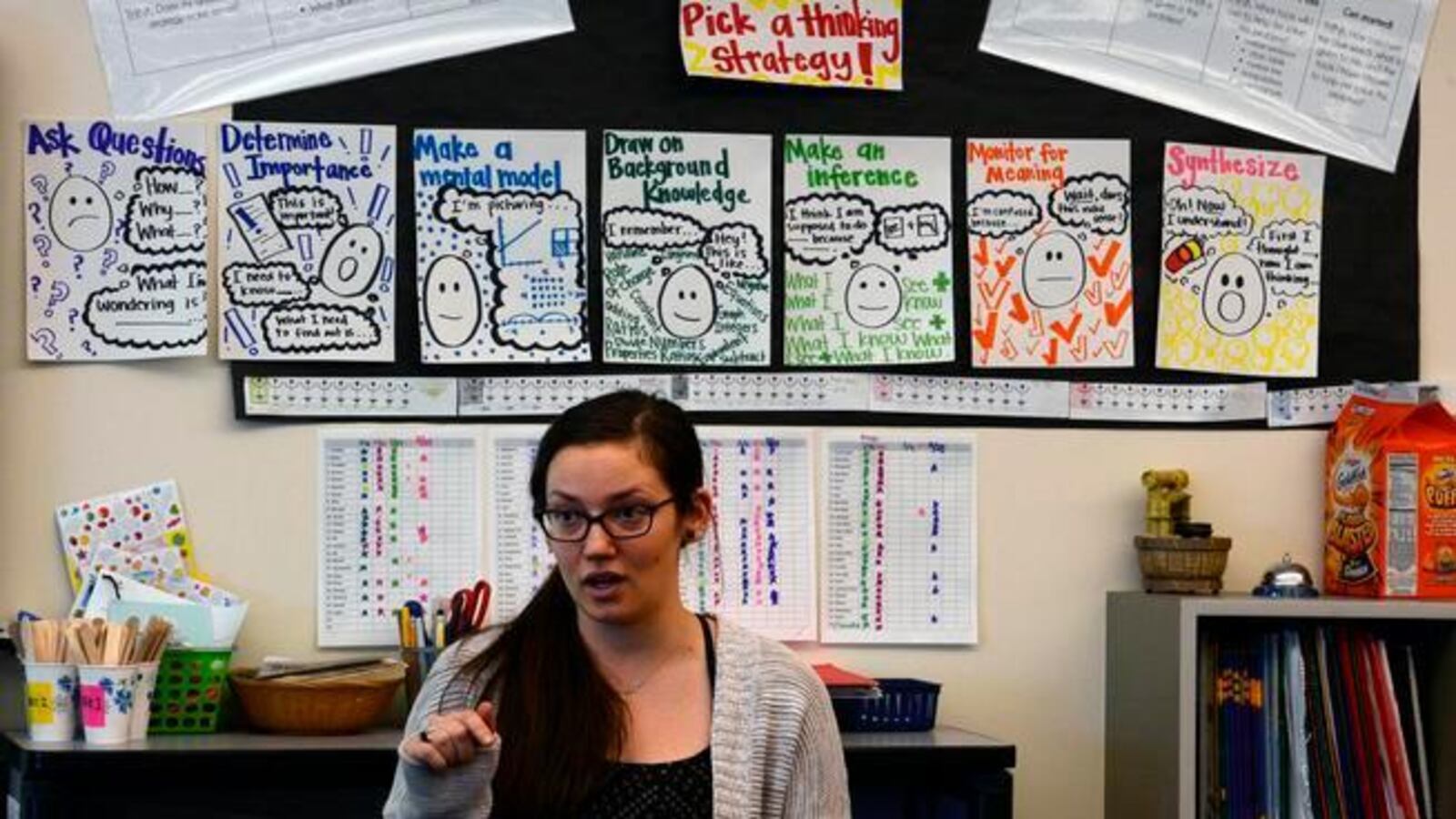The Aurora school district may experiment with paying some teachers and staff about $3,000, to see if the district can attract more candidates, fill more vacancies, and retain more employees.
The pilot plan has $1.8 million set aside for next school year to to attract and retain as many as 400 employees in hard-to-staff jobs. But in the long run, Superintendent Rico Munn said, the stipends could save Aurora money.
“This is a force multiplier,” Munn said. “If we can fill those positions ourselves, we can decrease our overall expenditures.”
Right now, when the district can’t fill certain critical positions, Munn said it must rely on contracting with agencies that help fill those jobs. There is an added cost paid to the agency.
The district’s school board is voting on the proposed budget on Tuesday. Officials say the money for the pilot program was set aside from a one-time increase of revenue the district received in the spring.
“We are really trying to be more strategic around how we recruit, retain, and develop our staff,” Munn said.
Over the past year, Aurora officials have focused on improving recruitment and retention. For instance, the next year’s budget proposal includes a request for about half a million dollars to send more principals through a University of Virginia training program.
This pilot, which the union opposed, would offer a stipend to all district nurses, psychologists, occupational therapists, and speech pathologists. Special education teachers, secondary math teachers, or secondary science teachers would be eligible if they work at any of 20 targeted schools.
The district selected schools that had higher turnover rates for these teachers than the district’s three-year average of 29 percent.
The stipend would be the same among jobs, but would vary if someone is a returning employee, or a new employee to the district.
In reviewing eligible positions, Munn said the district considered the number and length of existing vacancies, the number of applicants for those jobs, and how often the district had to seek help from an outside agency to fill them.
The district did not release detailed data on vacancies.
But in the case of nurses, psychologists, occupational therapists, and speech language pathologists, Aurora officials said they resorted to an outside agency to fill 27 vacancies in the 2017-18 school year. That’s out of approximately 160 employees serving in those jobs that year.
Munn said that the district will track data on fill rates, number of applicants, and vacancies to see if the stipends make a difference.
“I think we’ll certainly have the data come August,” Munn said. “If it’s not successful then we stop talking about it. If it, is then we start looking at in what circumstances.”
Several other school districts in Colorado and across the country provide stipends for hard-to-staff positions. Denver schools, for instance, offer incentives and bonuses for various duties, including working in a hard-to-serve school through their ProComp model. Research findings on the model have been mixed.
National research has found that hard-to-staff and performance bonuses can attract more candidates and increase retention, but knowing whether quality candidates are the ones staying is harder to say.
Julia Wigert, president of the Colorado Society of School Psychologists, said stipends could be one way to attract more candidates, especially if they reward those who have additional credentials, but said there are other important factor that might help.
“We believe the most effective way… is to offer a competitive salary along with supporting a comprehensive role for school psychologists,” Wigert said.
Bruce Wilcox, president of the teachers union, said he is concerned that the program creates inequities “for people who do the same jobs in different buildings.” He added that union leadership has done surveys of teachers and staff in the past and has found that money is not one of the top considerations for choosing to take a job.
In the case of Aurora, the results of the pilot, if successful, could be one consideration in the district decision on whether to ask for a tax increase this fall, or could also affect district negotiations with the union to create a new plan for paying teachers.
While Munn said he isn’t planning to advocate for basing salaries on performance or positions, he added that nothing is off the table.
Wilcox had said he seeks a more consistent way for teachers to get raises based on years of service and increases in education.
The list of 20 schools where some teachers will be eligible for stipends:
- Aurora Central High School
- Aurora Hills Middle School
- Aurora West College Preparatory Academy
- Boston P-8 School
- Clyde Miller P-8 School
- Columbia Middle School
- Dalton Elementary School
- Iowa Elementary School
- Jamaica Child Development Center
- Jewell Elementary School
- Kenton Elementary School
- Lyn Knoll Elementary School
- Meadowood Child Development Center
- North Middle School Health Sciences & Technology Campus
- Paris Elementary School
- Sixth Avenue Elementary School
- Tollgate Elementary School
- Vaughn Elementary School
- Vista PEAK Preparatory
- Wheeling Elementary School

